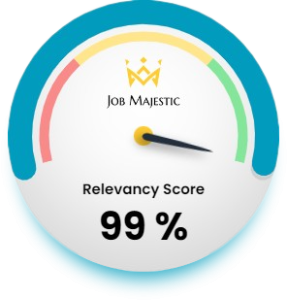Language plays a big role in making cultures truly special. It allows us to communicate and express our thoughts & emotions effectively. Being multilingual allows individuals to better dive deep into other beautiful cultures.
Before we get to the topic of writing your language skills on resume, allow us to convince you why being multilingual is important to your career as well.
Being Multilingual And It’s Career Benefits
- It allows greater job opportunities & flexibility
This is especially true when working in developing countries. Most international giants are keen to set up their Contact Centres in developing countries due to more favourable business environments.
Being multilingual helps in getting you access to these opportunities. For example, you may be a Japanese Citizen, working as an English – Japanese translator in Malaysia. FYI, these expatriates can earn a high salary compared to most locals. You could be next!
- Better networking experience
When you are able to communicate effectively in multiple languages, your potential social circle would naturally be wider compared to those who are not fluent in other languages.
Not only will you be able to network with all kinds of people, but learning their culture associated with the respective languages can allow you to see the world from different perspectives and be more knowledgable – indirectly boosting your mind and confidence.
- Favourable candidate in the job market
Finally, being multilingual enhances your resume and makes it stand out from thousands of job applicants. As the world is more globalised today, being multilingual just makes you a more valued and all-rounded employee overall.
Excited to boost your chances of landing your dream job? Here’s our guide on language skills on resume: common but deadly mistakes to avoid.
Language Skills on Resume: Mistakes to Avoid
1. Being Unsure About Your Proficiency Level(s)
Before inserting your language skills on resume and applying for jobs in Malaysia, evaluating your proficiency level is important. Most people, especially fresh graduates, do not even know their actual proficiency levels.
Without a self-evaluation, job seekers would be clueless when applying for jobs online. This may result in applying blindly and wasting everyone’s time in the future if you are selected for an interview.
To avoid jeopardising your image, we’d recommend everyone evaluate their language proficiency levels before inserting them into their resume.
2. Insufficient Job Vacancy Research
Speaking about applying for jobs blindly online, most job seekers also fail to research job advertisements and evaluate the language requirements for the said vacancies.
This step is crucial because knowing the language requirements will determine if you should apply for the job or not. If you are well aware that your language proficiency levels are not up to standard, please refrain from applying it.
Inadequate research will also weaken your ability to better position your language skills on resume because you do not have a good strategy for doing so.
3. Misplacing Your Language Skills on Resume
Even when job seekers have evaluated themselves and done sufficient research on the job vacancies, most of them will face an issue when it comes to customising their resume for the job application.
The number 1 issue would be on listing language proficiencies correctly, where job seekers make mistakes starting from the LEAST fluent language at the top – it should be the opposite, starting with the MOST fluent language to impress the hiring managers.
If you need more tips on listing your language skills on resume correctly, find out more in this article.
4. Being Dishonest
It is crucial to be honest when it comes to your skills, including language skills. Languages can be learned in a short amount of time, but reputation damage could be harmful for a lifetime.
One important thing for you to remember is – Underpromise, Overdeliver. It’s always better to not overestimate your language skills on resume. Nothing’s worse than coming to work on the first day and being handed a language task that you are not qualified for.
Instead, it may be better to underpromise and surprise your employer later on with how good you really are. During your interview sessions, that’s when you should really shine.
Closing Remarks
When you include your language skills on resume effectively and professionally, hiring managers would be impressed and you’ll be one step closer to your job interviews.
With a greater understanding of resume dos and don’ts, you are ready to create powerful resumes and ace the job application.
Need more interview tips and career guidance? Check out the Job Majestic blog today and get even closer to landing your dream job!







